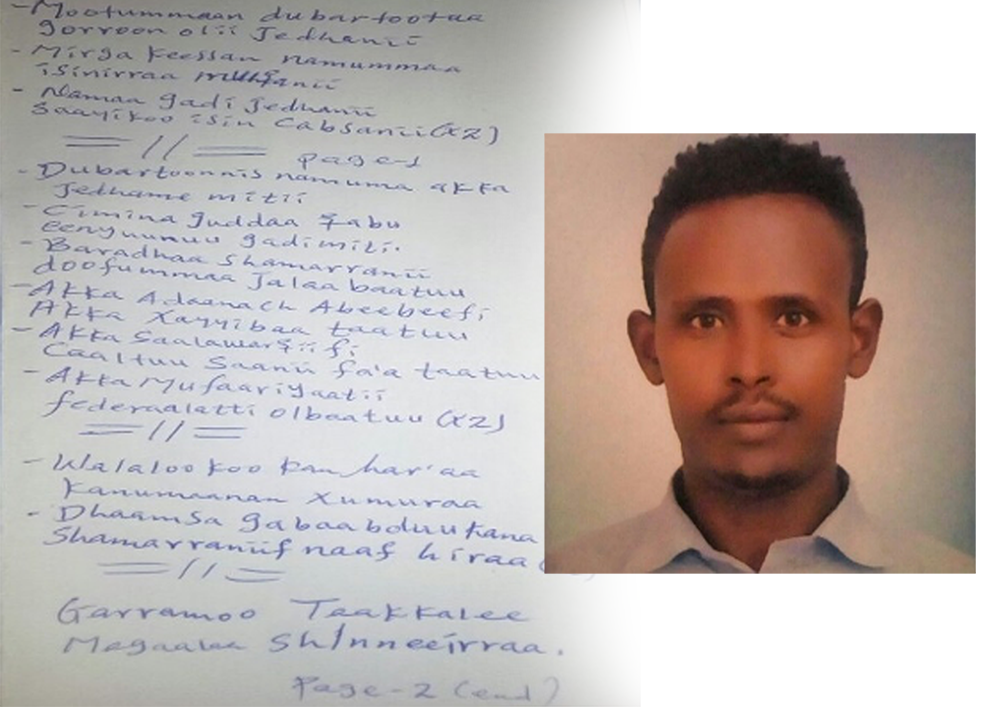Our Issue, Our Voice: statements from Ethiopia’s young poets
This year, young voices were at the forefront of the international ‘16 Days of Activism’ campaign (November 25 – December 10) against gender-based violence in Ethiopia. The EYW project partnered with the radio station Fana Broadcasting to reach young people from both Somali and Oromia regions, most of the youth in these regions do not have access to internet neither are owning a smartphone, but they listen to the radio. They are hosting a program since the beginning of the EYW project in local languages that addresses the topics of gender-based violence, unpaid care work and sexual and reproductive health.
To engage young people in these issues, a poetry competition on these themes was organized over the radio station’s phone programs. Over 100 participants from both regions and language programs took part in the contest. In the words of Abdisalam, the host of the Somali language program, “They were calling us from almost every region in Somali regional state to share with us their poetry lyrics and rhythms. Every part of the society was deeply interested to listen and be listened to.”
To choose the winners, the program’s hosts evaluated the message, word selection and structure of the poems. Although the poets were predominantly male, their perspective gave encouraging messages in support of the campaign, with most of them focusing on gender-based violence and women’s empowerment. All the winners received EYW-sponsored mobile data cards worth 100 birr ($3).

One of the winning poets was Girmew Takle from Shashemen in Oromia region. His poem condemns the injustices committed against women, vouching for their worth and their right to be treated with respect. He also encourages them to look up to women in power as a way to gain the courage to aspire to a better life.
While inspirational to some, this message was not as well received by others. Abdisalam admits that “As far as gender-based violence is concerned, our audience was deeply divided about the very existence of GBV itself, and that was the most controversial factor in our radio broadcasting experience.”
Nevertheless, the experience and feedback from youth participants remained positive in both regions. The Oromia radio program host, Minale Gebeyehu, said,
“Participants of the poetry contest expressed that it has empowered them to speak out on their issues, while also inspiring them to engage in a different kind of competition."
